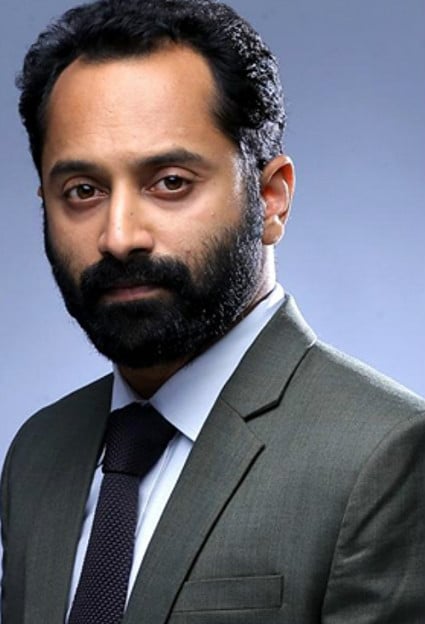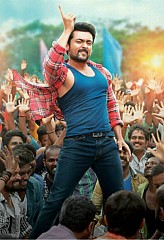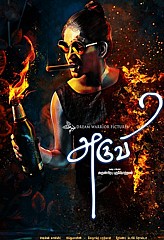

When the official trailer of Carbon, the Malayalam movie directed by ace cinematographer Venu, surfaced online, the most notable thing in it was a drunk Sibi Sebastian, the protagonist played by Fahadh Faasil, reflecting on life. In the casual shot picked from a drinking scene, Fahadh simply comments on the thrills of some fantastical elements in life, with a mysterious smile on his face. Later, the movie went on to garner positive reviews upon release and Fahadh’s performance has been hailed by critics as one of the best in his career.
What makes Sibi Sebastians’s boozed remarks and smile cues for our exploration of Fahadh’s emergence as one of the most versatile actors in contemporary Malayalam cinema is that it is beaming with an effortless performance. The single shot can be taken as a stamp for the actor’s metamorphosis as his characters, while leaving his watermark on them. The two big ‘Ms’ of Malayalam cinema, Mammootty and Mohanlal, are also known for such brilliance. The two great actors’ sphere of influence spread far as they became the icons of Malayalee masculine expressions for decades.
We can find a bit of ‘Mammootty’ or ‘Mohanlal’ element in every Malayalee man who grew up in the 80s and 90s. Fahadh entered the timeline of Malayalam cinema after this point through the 2002 Malayalam flick, Kaiyethum Doorath, directed by his father and renowned filmmaker Fazil. But, the movie turned out to be disastrous; his debut earned Fahadh horrid reviews, which eventually pushed him into a temporary oblivion.
And then, a smart, young man knocked on our doors again with the short film ‘Mrityunjayanam’ - a segment in the anthology film Kerala Café - and Malayalam moviegoers were surprised to see a reincarnated version of an actor, whom they mercilessly rejected and ridiculed seven years earlier. Fahadh’s return after a seven year hiatus became the talk of the town and he stole the show with a brand new approach of acting, which laid out the path to some promising offers. In the next three years after Kerala Café, Fahadh had perfected his acting method of blending realistic acting with a characteristic touch of style.
Movies like Chaappa Kurish (2011), 22 Female Kottayam (2012) and Diamond Necklace (2012) introduced a new star-actor phenomenon whom the new generation Malayalee masculinity could easily identify with. Fahadh lent body and breathed soul to an array of characters who dwelled in the fast pacing, ever changing, antagonistic, and rumbling metropolitan life. As any post-globalized individual, his characters fought for their ambitions, went through guilt free man-woman endeavors and cut-throat professional competence to achieve what they wanted.
Fahadh took another wild turn as he was on the verge of being typecasted with above mentioned roles flooding him. In 2013, he swept the Malayalam box office with hits like Annayum Rasoolum, Amen, Immanuel (with Mammootty), North 24 Kaatham, and Oru Indian Pranayakadha, and offbeat flicks like Akam and Artist. The actor repositioned himself as a dependable actor capable of shouldering heavyweight characters and a bankable star in the market with movies like 1 by Two (2014), Bangalore Days (2014), Iyobinte Pustakam (2014), Maheshinte Prathikaaram (2016), Take Off (2017), and Thondimuthalum Driksakshiyum (2017).
The two actors who come to our mind when we think about the new acting strategy executed by actors like Fahadh are Javier Bardem and Rahul Bose. Unlike method acting hardliners like Daniel Day-Lewis and Joaquin Phoenix, who disappear into the skin of the character, or the stars whose stardom dominates their characters, actors like Javier Bardem, Rahul Bose and Fahadh Faasil leave a piece of them in each character. They infringe the norms of the film industry by being unpredictable in picking up roles and play them with a safety net so that they can leave their characteristic mark on each one of them.
Interestingly, Fahadh joins the new bandwagon of Indian actors like Nawazuddin Siddiqui, Ayushmann Khurrana, Rajkummar Rao, Radhika Apte and Vijay Sethupathi, who consciously avoid the trap of typecasting. Diverse audience can find and identify with them in the black, white and gray zones of our daily lives. These star-actors are endowed with desires, fears and insecurities of the new urban middle class, who thrive on a social entertainment culture based on multiplexes. Velaikkaran marked Fahadh’s diversification plans, and with the exciting reports of the actor starring in the upcoming Mani Ratnam movie, Fahadh has a very promising ride of metamorphosis ahead.
Behindwoods is not responsible for the views of columnists.




